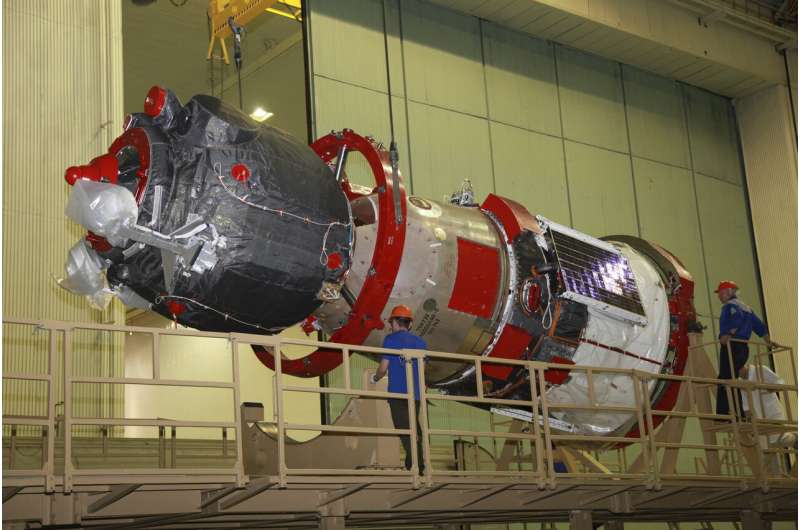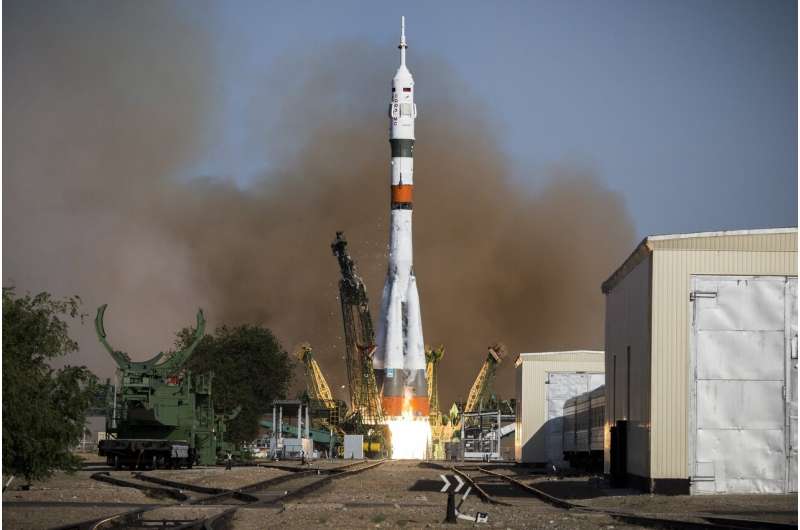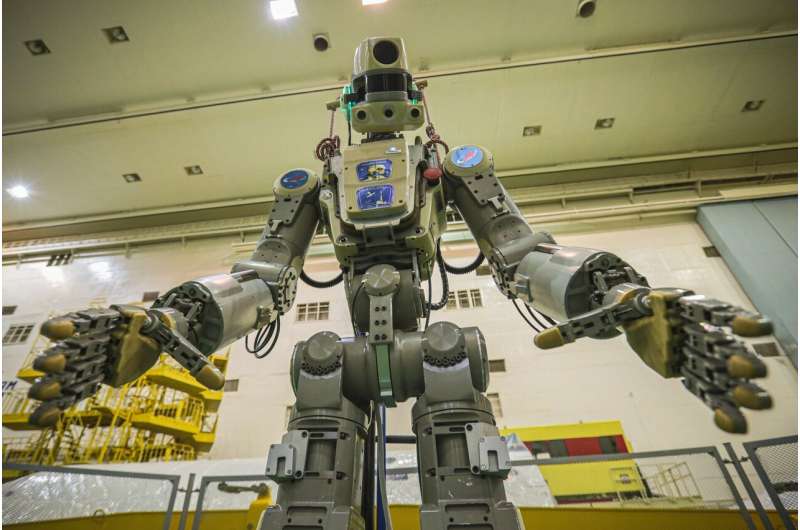In this photo taken on Sunday, July 28, 2019, and distributed by Roscosmos Space Agency Press Service, a Soyuz MS-14 capsule preparing to be launched Thursday Aug. 22, 2019, by a new Soyuz 2.1a rocket from the launch pad at Russia' at Russia's space facility in Baikonur, Kazakhstan. A Russian space capsule carrying a humanoid robot has failed to dock as planned with the International Space Station. A statement from the Russian space agency Roscosmos said the failure to dock on Saturday was because of problems in the docking system. (Roscosmos Space Agency Press Service photo via AP)
The crew of the International Space Station has successfully relocated a Soyuz space capsule to another docking port to facilitate the rendezvous with another spacecraft.
The maneuver followed Saturday's failed docking of the Soyuz MS-14 spacecraft. The docking attempt was aborted due to a suspected glitch linked to an automated control system on board the space station. Another attempt will be made Tuesday.
On Monday, Alexander Skvortsov of Russia's Roscosmos space agency, NASA's Drew Morgan and Luca Parmitano of the European Space Agency donned spacesuits and climbed into the Soyuz MS-13 space capsule serving as a lifeboat at the station to steer it to another docking port.
The maneuver is intended to facilitate Tuesday's repeat docking attempt of the Soyuz MS-14 that carries a Russian humanoid robot called Fedor.
-
In this photo taken on Thursday, Aug. 22, 2019, and distributed by Roscosmos Space Agency Press Service, a Soyuz capsule is launched by a new Soyuz 2.1a rocket from the launch pad at Russia's space facility in Baikonur, Kazakhstan. The new Russian rocket, that is expected to replace the current model sending manned missions into space, blasted off from Kazakhstan on Thursday, carrying a Soyuz capsule with a humanoid robot that will be tested in spaceflight conditions aboard the International Space Station (ISS). Roscosmos Space Agency Press Service photo via AP)
-
In this photo taken on Friday, July 26, 2019, and distributed by Roscosmos Space Agency Press Service, the Fedor robot is seen before being loaded into a Soyuz capsule to be launched by a new Soyuz 2.1a rocket from the launch pad at Russia's space facility in Baikonur, Kazakhstan. The new Russian rocket, that is expected to replace the current model sending manned missions into space, blasted off Thursday, carrying a Soyuz capsule with a humanoid robot that will be tested in spaceflight conditions aboard the International Space Station (ISS). (Roscosmos Space Agency Press Service photo via AP)
© 2019 The Associated Press. All rights reserved.

























